Porcelain Inlay
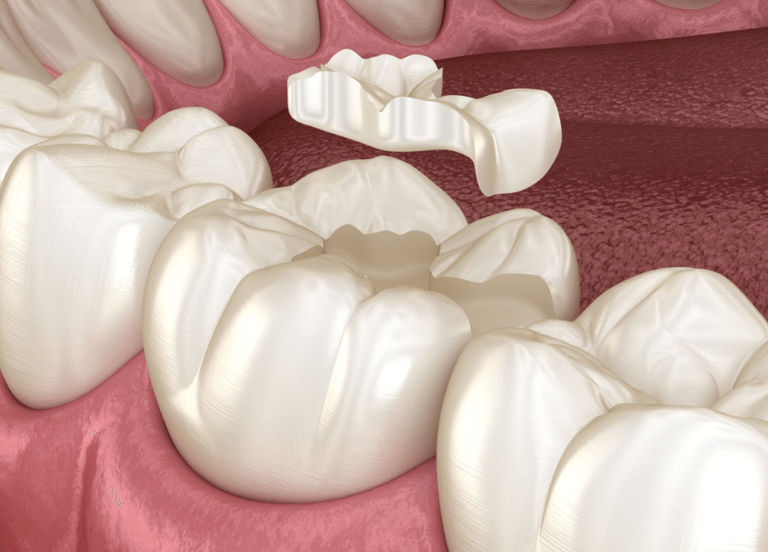
What Is A Porcelain Inlay?
A Porcelain Inlay is a type of dental restoration crafted from high-quality, biocompatible porcelain material. These restorations are custom-made to fit precisely within the contours of your tooth. The result is a seamless integration that not only restores the tooth’s functionality but also blends in harmoniously with your natural dentition. Whether it’s addressing cavities, fractures, or similar dental concerns, porcelain inlays have proven to be a popular choice due to their exceptional durability and ability to withstand the pressures of daily chewing and biting.
Before deciding on whether a Porcelain Inlay are right for you, there are some things you should know:
- Who Needs A Porcelain Inlay?
- What Are The Advantages Of A Porcelain Inlay?
- What Are The Alternative Treatments If I Do Not Choose A Porcelain Inlay?
- How Much Does A Porcelain Inlay Cost?
- What Are The Steps In The Porcelain Inlay Procedure?
- Can I Have A Porcelain Inlay If I Am Pregnant?
- How Long Does A Porcelain Inlay Last?
- What Are Common Problems with A Porcelain Inlay?
If you have any further questions about A Porcelain Inlay or other dental services offered at Atlas Dental, please contact us.

Free phone consultation
Have questions about tooth fillings? Schedule a free phone consultation with our Toronto dentist.

5 star google reviews
Our patients love us! See for yourself why more and more people are choosing Atlas Dental for their dental fillings.

Book Emergency tooth filling
Do you think you have cavities and need an appointment? Book an emergency tooth filling online.
Who Needs A Porcelain Inlay?
Porcelain inlays are an ideal restorative option for individuals facing specific dental concerns:
- Moderate Dental Decay: When a tooth develops a cavity or decay that extends beyond what can be addressed with a traditional dental filling, a porcelain inlay can effectively restore the tooth’s structure and function. Inlays are particularly useful when the cavity is too extensive for a regular filling but not severe enough to require a dental crown.
- Fractured or Cracked Teeth: Teeth that have experienced minor fractures or cracks can often be saved with a porcelain inlay. The inlay acts as a strong reinforcement, preventing further damage and restoring the tooth’s integrity.
- Large Filling Replacement: If you currently have a large amalgam or composite filling that needs to be replaced due to wear or deterioration, a porcelain inlay can provide a more durable and aesthetically pleasing alternative. Porcelain inlays are customized to fit precisely within the cavity, offering a stronger and more natural-looking restoration.
- Enhanced Aesthetics: Besides their functional benefits, porcelain inlays are an excellent option for individuals who prioritize aesthetics. The porcelain material closely mimics the appearance of natural tooth enamel, ensuring a seamless and virtually indistinguishable blend with the surrounding teeth.
- Biocompatibility: Porcelain is a biocompatible material, meaning it is well-tolerated by the human body and less likely to cause allergic reactions or sensitivities. This makes porcelain inlays suitable for a wide range of patients.
Determining the need for a porcelain inlay should always be carried out by a qualified dental professional. Your dentist will conduct a thorough examination and consider factors such as the extent of damage, the location of the affected tooth, and your overall oral health before recommending a porcelain inlay as the appropriate treatment option. If you have further questions about Porcelain Inlays, please contact us.
What Are The Advantages Of A Porcelain Inlay?
Porcelain inlays offer a host of advantages that make them a popular choice for dental restorations:
- Natural Appearance: One of the most significant advantages of porcelain inlays is their ability to mimic the color, translucency, and texture of natural tooth enamel. This seamless integration ensures that the restoration blends in flawlessly with your surrounding teeth, making it virtually indistinguishable from the rest of your smile.
- Durability and Strength: Porcelain is a remarkably robust material, making porcelain inlays highly durable and capable of withstanding the forces of everyday chewing and biting. With proper care and oral hygiene, a well-crafted porcelain inlay can last for many years, providing a reliable and long-lasting solution.
- Conservative Approach: Unlike dental crowns, which require significant removal of healthy tooth structure, porcelain inlays offer a more conservative approach to restoration. Inlays only address the damaged or decayed portion of the tooth, preserving the healthy enamel and reducing the risk of further complications.
- Custom-Fit: Each porcelain inlay is custom-made to fit precisely within the prepared cavity, ensuring a secure and snug fit. This level of customization not only enhances the inlay’s longevity but also contributes to a comfortable and natural-feeling restoration.
- Minimizes Sensitivity: Porcelain inlays provide an excellent seal that helps minimize tooth sensitivity. The restoration covers and protects the exposed inner layers of the tooth, reducing discomfort when consuming hot, cold, or sweet foods and beverages.
- Biocompatibility: Porcelain is biocompatible, meaning it is well-tolerated by the body and unlikely to cause adverse reactions. This makes porcelain inlays suitable for a broad range of patients, including those with allergies or sensitivities to certain metals.
- Stain Resistance: Porcelain is highly resistant to staining, maintaining its natural appearance over time. This means your porcelain inlay will remain bright and beautiful, even if you enjoy foods and drinks that may typically stain natural teeth.
- Easy Maintenance: Caring for a porcelain inlay is no different from maintaining your natural teeth. Regular brushing, flossing, and routine dental check-ups are all that’s needed to keep your inlay and overall oral health in excellent condition.
A porcelain inlay combines both functional and aesthetic advantages, making it an attractive option for individuals seeking a reliable and visually appealing dental restoration. If you have further questions about Porcelain Inlays, please contact us.
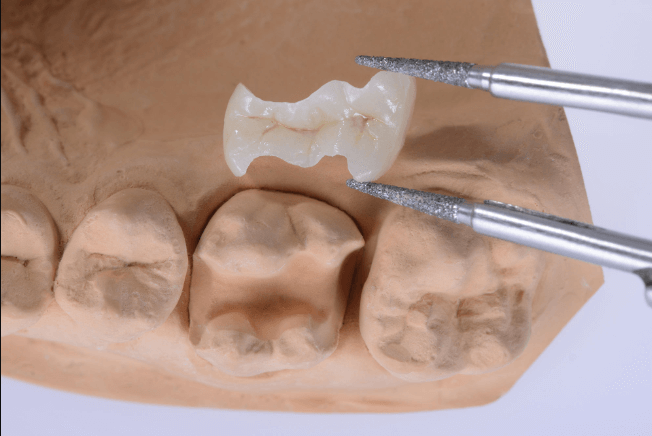
What Are The Alternative Treatments If I Do Not Choose A Porcelain Inlay?
If a porcelain inlay is not the right choice for your dental restoration needs, several alternative tooth filling treatments can be considered, each with its own set of advantages and considerations:
- Composite Resin Filling: Composite resin fillings, also known as tooth-colored or white fillings, are a popular alternative to porcelain inlays. Made from a mixture of plastic and glass materials, composite fillings can be color-matched to your natural teeth, providing an aesthetically pleasing solution. They are particularly suitable for smaller cavities and minor tooth damage. Composite fillings bond directly to the tooth, making them a conservative option that requires less tooth structure removal compared to amalgam fillings.
- Glass Ionomer Filling: Glass ionomer fillings are tooth-colored restorations that contain a blend of glass particles and an acrylic material. They are often used for small to medium-sized cavities, especially in areas of the mouth with less biting force. Glass ionomer fillings release fluoride, which can help strengthen the surrounding tooth enamel and provide additional protection against decay.
- Amalgam Filling: Amalgam fillings, also known as silver fillings, have been used for decades and are composed of a combination of metals, including silver, tin, copper, and mercury. While they are strong and durable, amalgam fillings are noticeable due to their metallic color and are not as aesthetically pleasing as tooth-colored options. In recent years, their use has decreased in favor of more aesthetically pleasing alternatives.
- Porcelain Onlay: Similar to porcelain inlays, porcelain onlays are custom-made restorations designed to cover a larger portion of the tooth’s surface. Onlays are suitable for cases where the damage or decay extends to the tooth’s cusps (pointed chewing surfaces). They offer the advantage of preserving more natural tooth structure compared to dental crowns, as they require less tooth preparation.
- Dental Crown: A dental crown, also known as a cap, is a custom-made restoration that completely covers the entire visible portion of a damaged tooth. Dental crowns are used when a tooth has significant decay or damage, and other filling options may not be sufficient. Crowns can be made from various materials, including porcelain, metal, or a combination of both. They provide exceptional strength and protection for weakened teeth.
- Dental Veneer: Dental veneers are thin shells of porcelain or composite resin that are custom-made and bonded to the front surface of teeth to improve their appearance. They are an alternative to fillings for treating minor cosmetic issues, such as chipped or discolored teeth.
It’s essential to discuss the pros and cons of each alternative treatment with your dentist. Factors such as the size and location of the restoration, your oral health, and your aesthetic preferences will all play a role in determining which option is best for your unique situation. If you have further questions about Porcelain Inlays, please contact us.
Cost of Porcelain Inlays
The cost of Porcelain Inlays will depend on the size of the inlay, which is translated as the number of “surfaces” involved. Imagine each tooth as a 5 surface box. Each “surface” that gets incorporated will dictate the size (and overall cost) of the dental inlay. Therefore, the cost of a porcelain inlay can range between $512-819 plus dental lab fee ($200). The codes relevant to dental fillings in the Ontario Dental Association’s Suggested Fee Guide appear as follows:
Inlays, Porecelain/Ceramic/Polymer Glass (Bonded)
- 25141 – One surface: $512 + Dental Lab Fee ($200)
- 25142 – Two surface: $718+ Dental Lab Fee ($200)
- 25143 – Three surface: $819 + Dental Lab Fee ($200)
The Ontario Dental Association’s Suggested Fee Guide is a proposed fee structure that dentists in Ontario may or may not follow. Please consult with your dentist about fees before going ahead with treatment.
Dental Fillings are considered a major restorative service under all dental insurance plans and may or may not be covered by your dental insurance. Be sure to find out from your dental insurance plan provider how much you are eligible for before going ahead with dental treatment. Your dentist can help you submit a predetermination to your dental insurance.
For patients without dental insurance, Atlas Dental is pleased to offer dental financing through Dentalcard. Affordable payment plans start at 7.95% for terms of 6 months to 6 years. To learn more about Dentalcard dental treatment financing, follow this link.
What Are The Steps In The Porcelain Inlay Procedure?
The porcelain inlay procedure involves several steps to ensure a precise and custom-fit restoration that seamlessly integrates with your natural teeth:
- Initial Consultation: Your journey towards a porcelain inlay restoration begins with an initial consultation with your dentist. During this appointment, your dentist will thoroughly examine the affected tooth and discuss your dental concerns and treatment options. Dental X-rays may be taken to assess the extent of decay or damage and to determine the suitability of a porcelain inlay for your case. Please review these tooth filling pre-visit instructions before your appointment.
- Tooth Preparation: Once the decision to proceed with a porcelain inlay is made, your dentist will begin the tooth preparation process. The damaged or decayed portion of the tooth is gently removed, leaving behind a clean and stable foundation for the restoration. Unlike dental crowns that require significant tooth reduction, inlays preserve more of the healthy tooth structure, making them a conservative restoration option.
- Impressions: After the tooth is prepared, your dentist will take precise impressions of the treated tooth and the surrounding teeth. These impressions are crucial in creating a custom-fit porcelain inlay that matches your tooth’s shape, size, and contours. The impressions are sent to a dental laboratory where skilled technicians will craft your personalized restoration.
- Temporary Filling: While your permanent porcelain inlay is being fabricated at the dental laboratory, your dentist will place a temporary filling or restoration to protect the prepared tooth. This temporary solution maintains the tooth’s function and appearance until your next dental appointment.
- Fitting the Inlay: Once the dental laboratory completes the fabrication process, you’ll return to your dentist for the placement of your porcelain inlay. Your dentist will check the fit of the inlay to ensure it precisely matches the prepared cavity. Adjustments, if necessary, will be made to guarantee a comfortable and secure restoration.
- Bonding the Inlay: With the perfect fit confirmed, your dentist will bond the porcelain inlay to your tooth using a dental adhesive. The bonding process creates a strong and lasting bond between the inlay and the tooth structure. After bonding, your dentist will polish the inlay and the surrounding tooth to achieve a smooth and natural-looking finish.
- Final Adjustments: Your dentist will carefully check your bite to ensure that the porcelain inlay does not interfere with your natural tooth alignment. Any minor adjustments will be made to ensure proper occlusion and a comfortable bite.
- Post-Treatment Instructions: Your dentist will provide you with tooth filling post-treatment instructions, which may include advice on caring for the new filling, avoiding certain foods, and maintaining good oral hygiene.
By following these steps, the porcelain inlay procedure offers patients a reliable and aesthetically pleasing restoration that enhances the beauty and longevity of their smile. If you have further questions about Porcelain Inlays, please contact us.
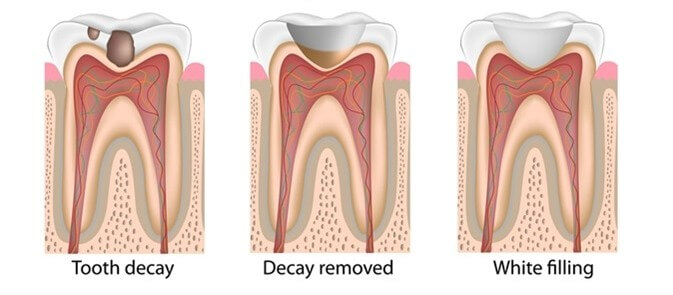
Can I Have A Porcelain Inlay If I Am Pregnant?
The good news is that getting a porcelain inlay during pregnancy is generally considered safe. However, there are some considerations to keep in mind:
- Consultation with Your Healthcare Provider: Before undergoing any dental procedure, including getting a porcelain inlay, it’s crucial to inform your obstetrician or healthcare provider about your dental needs. They can provide guidance based on your overall health, the stage of your pregnancy, and any specific considerations that may apply to your case.
- Timing of the Procedure: Whenever possible, elective dental treatments, including porcelain inlays, are often deferred to the second trimester of pregnancy. The second trimester is considered the safest period for most dental procedures, as the baby’s major development is complete, and the risk of potential complications is lower.
- Local Anesthetics: Local anesthetics used during dental procedures are generally considered safe during pregnancy. Your dentist will carefully select an appropriate local anesthetic with minimal risk to both you and your baby. Be sure to inform your dentist about your pregnancy and any changes to your medical history.
- Radiation Exposure: Dental X-rays are usually avoided during pregnancy to minimize radiation exposure to the developing fetus. However, if deemed necessary for your dental treatment, your dentist will take precautions to shield your abdomen and use the lowest possible X-ray dosage.
- Communication with Your Dentist: Openly communicate with your dentist about your pregnancy and any concerns you may have. Your dentist will take extra precautions and make adjustments to ensure your comfort and safety during the procedure.
- Dental Hygiene: Maintaining excellent dental hygiene during pregnancy is crucial. Regular dental check-ups and cleanings are especially important, as hormonal changes during pregnancy can increase the risk of gum disease and dental issues.
Ultimately, the decision to proceed with a porcelain inlay during pregnancy should be made collaboratively between you, your dentist, and your healthcare provider. Remember that neglecting dental problems during pregnancy can lead to more significant issues and potential risks to both your oral health and the health of your baby. If you have further questions about Porcelain Inlays, please contact us.
How Long Does A Porcelain Inlay Last?
On average, a porcelain inlay can last anywhere from 10 to 20 years or even longer in some cases. Several factors contribute to the longevity of a porcelain inlay:
- Oral Hygiene: Maintaining excellent oral hygiene is essential in preserving the life of your porcelain inlay. Brush your teeth at least twice a day with fluoride toothpaste and floss daily to remove plaque and prevent dental decay.
- Regular Dental Check-ups: Regular dental check-ups are vital to monitor the condition of your porcelain inlay and identify any potential issues early on. Your dentist can address minor concerns before they escalate into more significant problems.
- Avoiding Harmful Habits: Certain habits can impact the durability of your porcelain inlay. Avoid using your teeth to bite or open non-food objects, as this can put unnecessary stress on the restoration.
- Dietary Choices: Be mindful of your dietary choices, as certain foods and drinks, particularly those high in sugar and acid content, can contribute to dental decay and damage. Limiting consumption of these items can help preserve your natural teeth and restorations.
- Teeth Grinding (Bruxism): If you have a habit of grinding or clenching your teeth, known as bruxism, it can lead to premature wear and damage to your porcelain inlay. Your dentist may recommend a nightguard or other protective measures to safeguard your restoration.
- Biocompatibility: The biocompatibility of porcelain makes it well-tolerated by the body, reducing the risk of adverse reactions and enhancing the inlay’s longevity.
Remember that the lifespan of a porcelain inlay can be affected by individual factors, and it’s essential to communicate openly with your dentist about any concerns you may have. Your dentist can offer personalized advice on how to care for your porcelain inlay and maintain optimal oral health. If you have further questions about Porcelain Inlays, please contact us.
What Are Common Problems with A Porcelain Inlay?
While porcelain inlays are generally durable and long-lasting dental restorations, like any dental treatment, they may occasionally encounter issues over time. Some common problems that can occur with a porcelain inlay include:
- Fracture or Chipping: Porcelain is a strong material, but it is not invulnerable to excessive force or trauma. A porcelain inlay can chip or fracture if subjected to significant impact, such as biting on hard objects or experiencing a facial injury.
- Wear and Tear: Over many years of use, a porcelain inlay may experience normal wear and tear. This can lead to slight surface roughness or wearing down of the restoration. While this is a natural part of the restoration’s lifespan, it’s essential to monitor the inlay’s condition during regular dental check-ups.
- Decay Around the Inlay: Even with a well-fitted porcelain inlay, there is a slight risk of dental decay developing around the restoration’s edges over time. Regular dental check-ups are crucial for detecting early signs of decay and addressing them promptly.
- Discoloration: While porcelain is highly stain-resistant, it is not entirely immune to discoloration. Over time, the inlay’s color may subtly change due to exposure to certain food and beverages or habits like smoking.
- Marginal Integrity Issues: Marginal integrity refers to the fit of the inlay at the edges of the prepared tooth. If there is a gap or improper sealing at the margins, bacteria can enter and cause decay to develop underneath the inlay.
- Tooth Sensitivity: Some individuals may experience increased tooth sensitivity after receiving a porcelain inlay. This sensitivity is usually temporary and should subside within a few days to weeks.
- Premature Filling Loss: In rare cases, a porcelain inlay filling may prematurely dislodge or fall out due to improper bonding or inadequate tooth preparation. If this happens, it is essential to seek prompt dental attention to prevent further damage.
If you experience any issues or discomfort with your porcelain inlay, it’s essential to contact your dentist promptly. Early detection and timely intervention can help resolve problems and extend the lifespan of your restoration. If you have further questions about Porcelain Inlays, please contact us.
We also think you’ll like…
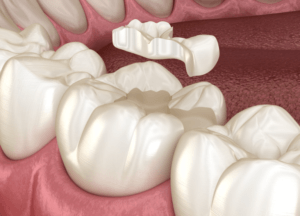
Porcelain Inlay Recementation
Porcelain Inlay Recementation What Is Dental Inlay Recementation? A Porcelain Inlay is a type of dental restoration crafted from high-quality, biocompatible porcelain material. These restorations
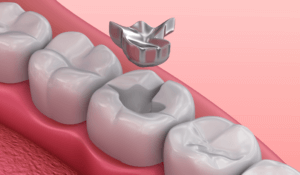
Amalgam Filling
Amalgam Filling What Is An Amalgam Filling? An Amalgam Filling is a dental restorative material used to repair teeth that have been compromised by dental
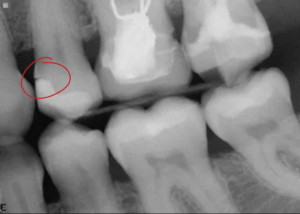
Dental Filling Open Margin
Dental Filling Open Margin What Is A Dental Filling Open Margin? A Dental Filling is a restorative dental treatment used to repair a damaged or
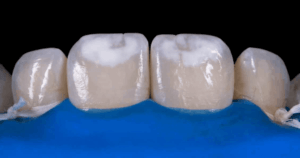
White Spot Lesions
White Spot Lesions What Are White Spot Lesions? White spot lesions, also known as enamel decalcifications, are common dental conditions characterized by chalky white patches
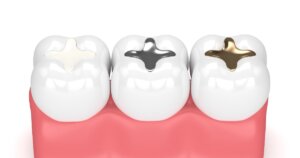
Dental Filling Pre-Operative Instructions
Dental Filling Pre-Operative Instructions What You Should Do Before Your Dental Filling Appointment A tooth filling is the cosmetic dentist’s primary method of repairing teeth
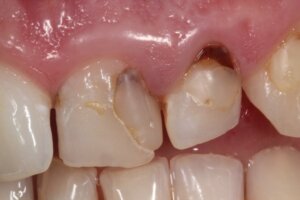
Discolored Filling
Discolored Filling What Is A Discolored Filling? Dental fillings are a common treatment for cavities and decay. They are typically made of a composite resin

